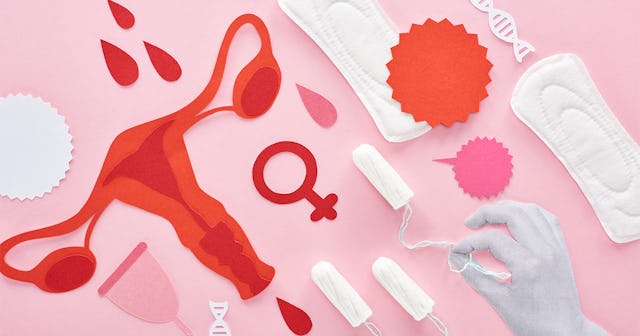What First-Time Menstruators Should Know

I learned about menstruation through word of mouth, through whispers and stories from the kids in my class and their older siblings. I had no idea what menstruation meant and not even the faintest idea where to begin asking questions. Getting your period was a vague concept shrouded in mystery—even months after I’d gotten my first period.
In an effort to ensure my tween daughter doesn’t feel like she’s entering an unknown world when she gets her first period, I’ve started talking to her about it, even though I was worried the idea of a period would be seriously weird. It’s brought up a lot (a lot) of good questions, and I’ve been continually surprised by the things that are on her mind. Friends of mine with first-time menstruators have reported their children have similar questions.
Scary Mommy got in touch with Dr. Alyssa Dweck, a gynecologist and INTIMINA’s Sexual and Reproductive Health Expert, to get a better understanding of what first-time menstruators should know before, during, and after their first period.
What Are The Signs To Look Out For Before A First Period?
First time menstruators range in age from nine to 16 years old. With an age range that broad, it can feel impossible to guess when that first period is on its way. For first-time menstruators, that feeling–that it’ll come without warning–can be anxiety-inducing. But there are signs. Dr. Dweck notes that the signs a first period is on its way are often only recognized in hindsight, but they are there. Often, these signs can be cramps, moodiness, and fatigue.
First-time menstruators can also look to age of onset of other family members to attempt to predict when their first period might come. And for any lingering concerns about preparedness, Dweck notes that “[i]t’s reasonable to keep some emergency supplies in school/sports bag (i.e. pad or pair of menstrual panties, ibuprofen, portable heat pad).”
What’s The Best Menstrual Hygiene Product For First-Time Menstruators?
Most first-time menstruators can expect to bleed for about two to seven days, although “the flow [can] be longer or variable in the first few years after menarche,” writes Dweck. She notes that most first-timers use a menstrual pad, mainly due to ease, availability, and comfort level. However, menstrual underwear are growing in popularity as a choice.
What To Know About First-Time Menstruators, Cramps, And Mood Swings
Unfortunately, first-time (or even relatively new) menstruators are not spared from cramps. Many will have cramps for a day or two before their period begins. Dweck suggests anticipating cramps before they begin and being prepared. Heating pads placed over the lower abdomen can help, as can Ibuprofen (taken as directed) and, in some cases, exercise. It’s important to note that in certain situations, stronger pain relievers or the pill may be necessary.
Like cramps, mood swings are another common prelude to menstruation. “Upwards of 90% may actually suffer from PMS (premenstrual syndrome) a clear pattern of physical and emotional symptoms that occur before menstruation and definitely end once flow starts,” writes Dweck, who notes also that when blended with typical middle school angst, irritability is “incredibly common.”
Is There Anything To Be Aware Of?
According to Dr. Dweck, there are a few situations with respect to first-time (or new) menstruators that should be investigated. These are, “[a]bsence of first menstrual period by 16 years old, super heavy flow, intense cramps or other menstrual habit that interferes with day to day activities.”
Parents can look to a pediatrician or family doctor to provide guidance, if there are any questions, or seek a referral to a gynecologist if any of the situations listed above are present. Otherwise, first-time menstruators can begin routine gynecological visits between 16 and 18 years old—though at first, this visit will be more of a meet and greet than a pelvic exam.
Above all, open direct conversation before your child’s first period is most important, writes Dweck. “[N]ormalize the conversation around menstruation; moms and dads and in some cases siblings, aunts and grandmothers and friends may need to step up to this role as evidenced by all stories in INTIMINA’s Wonder Girls Guidebook.” She encourages “a supportive nonjudgmental approach.”
Because, as Dweck reminds us, “[t]his is a natural experience and not a taboo subject.”
When it comes to me and my daughter, I know I don’t have all the answers for her. I know she may go to her friends with her questions before coming to me, the way I went to my friends first. But all that matters to me is that she knows she can come to me with her questions, and that she trusts if I don’t know the answer, I will help her find it. Because puberty is scary enough to navigate, and if I can give her even a little bit of help—I will.
This article was originally published on